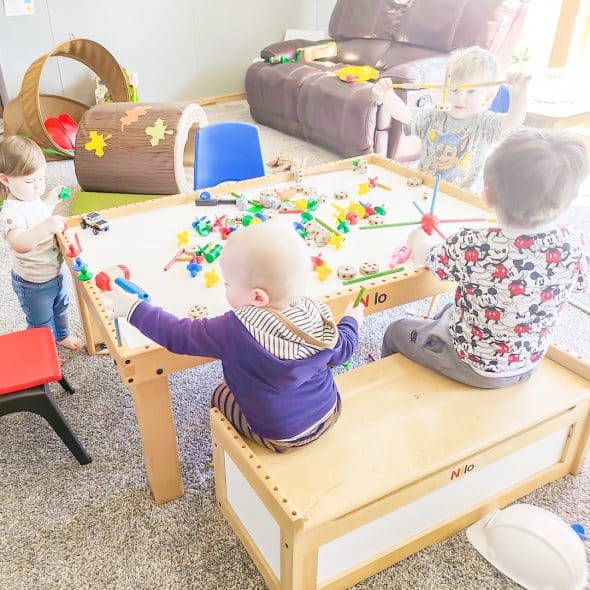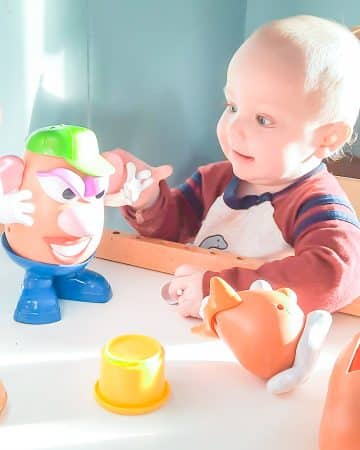
Pretend play is an essential part of childhood and a crucial aspect of a child’s development. It is through play that children learn, explore, and understand the world around them.
Pretend play, also known as imaginative play, is a type of play that involves creating imaginary scenarios and characters. It is a powerful tool for children to learn and develop important skills. Below we will discuss the power of pretend play and how it can benefit children in various ways.
Developmental Benefits
Pretend play can provide a wealth of developmental benefits for children. One of the most significant benefits is that it promotes creativity and imagination. When children engage in play, they use their imaginations to create different scenarios, characters, and stories. This type of play allows them to think outside the box and explore different possibilities.
Pretend play also helps children to develop their social and emotional skills. Children learn to understand different emotions and how to express themselves. They also learn how to communicate with others and develop their social skills. It can also help children to develop empathy and understanding of others’ perspectives.
Furthermore, pretend play can also help children to develop their cognitive skills. When children engage in this type of play, they use their problem-solving skills to overcome obstacles and challenges. They also develop their language skills as they communicate with others and express themselves.
Types of Pretend Play
There are many types of pretend play that children can engage in, including:
- Role-playing: This type of play involves taking on different roles, such as a doctor, teacher, or firefighter.
- Dramatic play: This type of play involves creating imaginary scenarios, such as a tea party, a restaurant, or a grocery store.
- Storytelling: This type of play involves creating and telling stories using different characters and settings.
- Dress-up: This type of play involves dressing up in different costumes and playing different roles.
How to Encourage Pretend Play
As a parent, teacher, or caretaker, there are many ways you can encourage pretend play in children. Here are some tips:
- Provide props: Provide children with props, such as dress-up costumes, play food, or dolls, to help them engage in play.
- Set up a play area: Set up a designated play area for children to engage in play. This could be a corner of a room or a separate playroom.
- Play with your child: Join in and play with your child, taking on different roles and characters. This will encourage them to engage in play and help to develop their social skills.
- Read books: Read books with your child that involve different characters and scenarios. This will help to inspire their imaginations and encourage them to engage in play.
Pretend play is a powerful tool for children to learn and develop important skills. It promotes creativity, imagination, social and emotional skills, and cognitive skills. As a parent, teacher, or caretaker, there are many ways you can encourage this type of play in children, such as providing props, setting up a play area, playing with your child, and reading books. By encouraging this type of play, you are providing children with a fun and engaging way to learn and develop, and setting them up for success in the future.
The Perfect Place for Pretend Play
We highly recommend you get a Nilo play table for your pretend play activities. They are the perfect centerpiece for play and are proven to last generations, literally! With varying leg length options, Nilo play tables can grow with your child.
Need box storage for toys? We offer childrens toy storage from storage bins to toy chests with benches. Click the shop now button to view more of our great products.
-
Product on sale
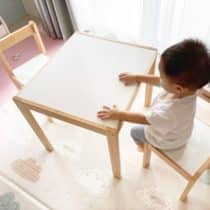 Toddler Table and Chairs SetOriginal price was: $129.00.$99.00Current price is: $99.00.
Toddler Table and Chairs SetOriginal price was: $129.00.$99.00Current price is: $99.00. -
 Large Toy Box$229.00
Large Toy Box$229.00 -
Product on sale
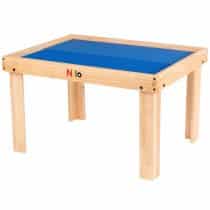 Small Nilo® Toddler Activity Table with Blue Baseplates (With Accessory Holes)Original price was: $289.00.$249.00Current price is: $249.00.
Small Nilo® Toddler Activity Table with Blue Baseplates (With Accessory Holes)Original price was: $289.00.$249.00Current price is: $249.00. -
Product on sale
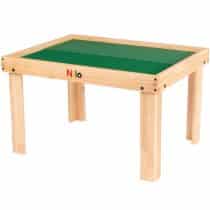 Small Nilo® Toddler Activity Table with Green Baseplates (With Accessory Holes)Original price was: $289.00.$249.00Current price is: $249.00.
Small Nilo® Toddler Activity Table with Green Baseplates (With Accessory Holes)Original price was: $289.00.$249.00Current price is: $249.00. -
Product on sale
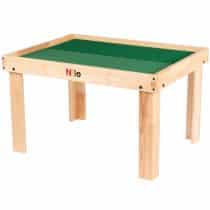 Small Nilo® Toddler Activity Table with Green Baseplates NO HOLESOriginal price was: $289.00.$249.00Current price is: $249.00.
Small Nilo® Toddler Activity Table with Green Baseplates NO HOLESOriginal price was: $289.00.$249.00Current price is: $249.00. -
Product on sale
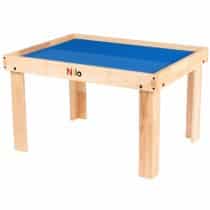 Small Nilo® Toddler Activity Table with Blue Baseplates NO HOLESOriginal price was: $289.00.$249.00Current price is: $249.00.
Small Nilo® Toddler Activity Table with Blue Baseplates NO HOLESOriginal price was: $289.00.$249.00Current price is: $249.00. -
Product on sale
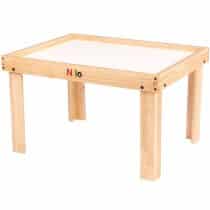 Small Nilo® Toddler Activity TableOriginal price was: $259.00.$219.00Current price is: $219.00.
Small Nilo® Toddler Activity TableOriginal price was: $259.00.$219.00Current price is: $219.00. -
Product on sale
 Large Nilo® Multi-Activity Childrens Play Table (With Accessory Holes)Original price was: $329.00.$289.00Current price is: $289.00.
Large Nilo® Multi-Activity Childrens Play Table (With Accessory Holes)Original price was: $329.00.$289.00Current price is: $289.00. -
 Nilo® Caddy$28.95
Nilo® Caddy$28.95


